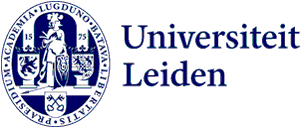
Antje Wessels will investigate the world of fragments with NWO grant
Professor Antje Wessels has received an NWO Open Competition grant to research fragmentary texts.
'Fragmentary texts are everywhere: we encounter fragments on social media like TikTok and Twitter, in personal memories from our childhood and in traditions from our cultural heritage,' Wessels explains. 'Like riddles and unsolved criminal cases, their appeal stems from the conflict between imperfect and complete information. Fragments can be stimulating and thought-provoking because they invite us to be active and "fill in" gaps by contributing our own thoughts.'
Wessels also explains that fragments can be dangerous for the same reason: interpreting always requires decisions about the missing context, and these decisions are often based on shaky assumptions or biases. 'It is difficult, and often impossible, to abandon our biases, but it is important to become aware of how they affect us.'
Looking to the Romans to understand fragmentary texts
'The Roman Republican Tragedy is a perfect case study to understand how fragments are experienced and how this experience is influenced by preconceptions. This corpus of text has been preserved exclusively in fragments, but at the same time has an illuminating history of interpretation. 'We see that scholars, both ancient and modern, have tried to adapt the surviving content, style and sound of these fragments to the characteristics of their supposed model, Greek tragedy, rather than recognising their specific "Romanness",' says Wessels.
Until now, fragments of Roman republican tragedy have been presented in paper editions, making it difficult to escape the decisions made in these editions. For this project, the researchers will develop a digital platform that will help identify and manage biases about these fragmentary texts. The platform will also have an interactive element: 'One of the features of the platform will be a multidirectional arena that will allow users to experiment creatively with the existing fragments, reconsider scholarly decisions made in previous editions and collaborate with other scholars and students working in the field.'
Years of work
This new research project is the culmination of several years of work since 2019 and several pilots, including a pilot platform and an automated Latin scanning tool. Wessels: 'A classicist, Matthew Payne, and two computer scientists, Luuk Nolden and Philippe Bors, worked with me, and we also involved several groups of ResMA students in the pilots. For this new phase, we welcome two new team members, Basil Nelis and Thomas Kluitenburg.'
For Wessels, the most intriguing thing about the project has always been the close collaboration between Classics and Computer Technology and the combination of 'hardcore' philology and a research question relevant to everyone and in all parts of society. 'We plan to develop the digital platform in such a way that it can be used both in teaching in school and at university level. We’re also excited about the possibility of trying out new things, such as a Roman tragedy Twitter bot!'
